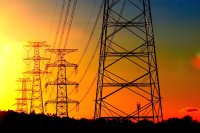Bulgaria is participating in the “Tour of Europe” — a pan-European initiative aimed at demonstrating and promoting renewable fuels as a viable alternative to electric mobility. But where can these fuels be used, and what is the potential for their production in Bulgaria?
Internal combustion engines can operate on renewable fuels, making them suitable for powering not only passenger cars but also trucks and trains.
Grozdan Karadzhov, Minister of Transport and Communications:
“At the Ministry of Transport, we have launched — and will officially announce in the coming days — a tender procedure for the purchase of 20 biodiesel-powered passenger trains. The parameters show that the emissions from a single car carrying four to five people are equivalent to those from one train transporting over 100 passengers while in motion.”
Renewable fuels emit approximately 75% less harmful emissions compared to conventional diesel. That’s why the “Tour of Europe” initiative aims to showcase these fuels as a strong alternative to electric mobility.
Claudia Rompineve Sorbello, Senior Policy Advisor at Fuels Europe:
“Renewable fuels are available to citizens and communities across Europe, and the supporting infrastructure is in place. It is entirely possible to uphold automotive regulations without weakening them, while still offering renewable fuels as a complement to transport electrification.”
These fuels are produced from a variety of waste materials — such as agricultural residues, fatty acid esters, and other by-products. Bulgaria has the necessary infrastructure to support their production.
Svetoslav Benchev, Chairman of the Bulgarian Petroleum and Gas Association:
“In terms of blending, we’re among the leaders, with one of the highest blending rates. But that alone won’t be enough. We need to allow for the separate sale of renewable fuels, as is done in other countries. For example, in France, E85 ethanol is sold directly, and thanks to a reduced excise tax, it’s cheaper than conventional fuels.”
Conclusion:
Renewable fuels make Europe less dependent on energy imports from third countries because they are produced entirely from domestic raw materials. Moreover, there is no need to replace the fleet.







 Чуй новините
Чуй новините Подкаст
Подкаст























